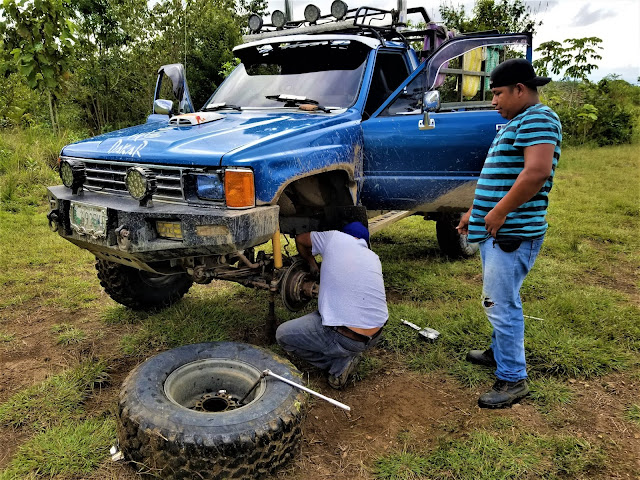FRONTERAS, GUATEMALA TO THE "OLD FOLKS HOME" AND A MAYAN VILLAGE 10/25 - 11/8/2018
This week we're spending our last few days in France before heading back to the States. I look forward to telling you about our times both here and in Switzerland. It's much different than the western Caribbean.
Other Stuff:
1. Wherever there are a considerable number of people
living on boats in one place for an extended period of time, a Cruisers Net is usually organized. The net on the Rio Dulce (Sweet River) is very active. Every morning at 7:30, except
Sundays, one of a handful of cruisers will take their turn at hosting the net. It is broadcast and received over channel 69 on marine vhf radios which every cruising boat has. The host goes through a script, which includes asking if anyone
has an emergency to report; if there are any new boats who would like to say hello
or if anyone is leaving and would like to say good bye; asks if anyone would
like to talk with anyone else on the radio after the net; gives a weather and tides reports; has local restaurants tell us what
their lunch specials are; asks if anyone needs help with any repairs, where to find things, who to contact about having work done, etc.; asks if anyone has items they
would like to buy, sell or trade; gives the opportunity for local businesses to make short advertisements; allows people to announce what special events may be coming up; and finally asks if anyone has anything else to say.
The net usually lasts 30 to 60 minutes, depending on who the host is and how chatty
the cruisers are that morning. I think it's very helpful, especially to those new to the area. It can also be pretty entertaining, as some
cruisers routinely get under each other’s skin.
2. Wherever we have been, there's been MANY more women of all ages traveling solo or in pairs, than men. Delana says it's because most women are braver. I say it's because most men are just more content with where they are.
3. There are a lot of American logoed t-shirts in
Central America. When shirts don’t sell in the States, they must get sold here at a discount, or are maybe just donated. It's kind of strange to see a Mayan man in a "My Little Pony" or "Go Big Red" t-shirt.
4. There's also a lot of American music, including country, in Central America, as well as Europe. And they aren’t always the best songs. Again, it’s pretty weird to hear Billy Ray Cyrus singing “Achy Breaky Heart” in the Swiss Alps.
| The Saturday before Halloween and the Day of the Dead, the cemetery across the little bay from where we're docked, was busy with people cutting weeds, cleaning up and decorating grave sites. They had a big service on that Sunday. In the lower right corner of the above photo you can see a empty paint can and bottle. Other empty cans, as well as used brushes, were left among the graves. I suppose they'll get picked up the Saturday before next year's Day of the Dead. |
Delana was absolutely hideous for Halloween, which we celebrated by dinghying to a couple different water front bars.
This is the view of the Rio Dulce as we crossed the bridge on our way back from the village. Our marina is at the second peninsula on the left.














































Comments
Post a Comment